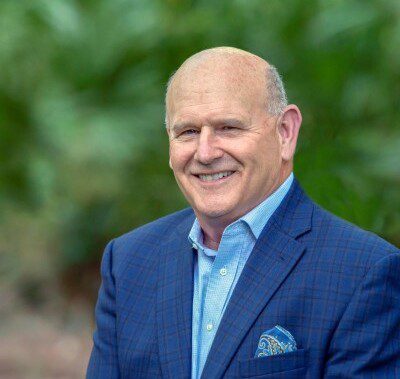Rick Ellis, Vice President, Global Development at Anywhere recently shared an article on RealtyBizNews. Enjoy these key insights on leading with a growth mindset.
A mere week had passed since Hurricane Ian tore through Southwest Florida, leaving a swath of damages that could reach as high as $250 billion, and yet inside this once beautiful real estate broker’s office, workmen were already at the task of rebuilding. Talking over the noise of construction, the Broker/Owner explained that she had been through enough disasters over the years to know there is going to be tremendous opportunity ahead. Her resolve reminded me of the wisdom of the Chinese general and philosopher, Sun Tzu, who said, “In the midst of chaos, there is also opportunity.”
While the broker’s personal home was in shambles with six figures of non-insured losses, she was instead focusing on assisting her agents, clients, and the community. Simultaneously, she was making plans to be stronger for the opportunities she saw ahead in her market during the coming months.
While most markets have not experienced a Category 4 hurricane, circumstances impact each market uniquely. Whether it’s natural disasters, economic collapse, epidemics, 20% interest rates, and more, there are always opportunities that surface in the aftermath and those who seek them out.
Currently, increased inflation woes, interest rates poised to surpass 8%, the high cost of housing, continued recession, and uncertain politics each impact the immediate future for all real estate markets. While the headlines often predict a dire real estate collapse and online search results for the subject, “real estate market crash” went up 284% in September according to Google Trends, most feel the market pullback will be significantly less dramatic. Zillow Research predicts that metros in the South and Midwest are the least likely to see major declines over the next year, except for vacation and second-home markets.
John C. Maxwell, author of the book “The 21 Irrefutable Laws of Leadership” had a new twist on an old saying: “Change is inevitable. Growth is optional.” What can brokers do now to lessen the market impact and even grow within their market? Here are five keys to changing your real estate future.
Anticipate a shift in your business – Brokers need to anticipate the market shifting and be agile and versatile enough to prepare for evolving market conditions. The “we’ve always done it this way” mindset is a trap in a rapidly changing market.
Brokers and agents must be able to adjust to their environment whether it’s the new marketing, redirecting agents’ activities, altering their target market, or investing in their business. Brokers need to be proactive; hope is not a good strategy.
Prepare for a buyer’s market – Home value growth, which hit record levels during the past two+ years is now slowing according to Zillow. With affordability challenges and rising mortgage rates, many buyers have hit “pause.” Simultaneously, forecast rent increases are expected to jump faster than home prices. Watch for buyers to return to the market in large numbers in the spring and expect 2023 to be a stronger spring market than this fall has been.
Also, as prices level out, buyers who are not affected as greatly by rising interest rates will be looking for deals that further impact the buyer’s market.
Focus on listings – Listings always drive the business and they are especially important as the market shifts. When you have the listings, every broker in the MLS works for you and the out-of-town buyers beat a path to your door. Building the listing base is an industry-wide challenge, but it pays dividends by providing predictability over your business and financial rewards for the agents and the brokerage.
The Florida broker who is preparing for the coming months knows that based on her market history, many owners will sell following the hurricane, and buyer activity will sharply increase. She and her agents are increasing her company’s involvement in the rebuilding of their local communities. The company’s focus has always been on local clients, and she is stepping up her marketing so that they will be the brokerage of choice when homeowners opt to sell.
Retrain your agents – Agents have been primarily buyer-focused since the start of the COVID-19 crisis. Newer agents jumped into the industry during this time, and many have done well working with buyers, but it’s time to shift the focus to the seller side of the business. This requires a completely different skillset from the agents.
Many agents need training and support in areas such as prospecting, answering objections, negotiations, pricing, preparing a home for sale, managing the sales process, and more. Teaching agents to work with both sellers and buyers to nurture them through the changing process is critical.
Speaking of agents, this is a great time to be doubling down on your recruiting activities. Agents and teams are shifting to new brokerages in droves and in a down market, you can’t cut your way to profitability, you have to double down on recruiting.
Think unconventionally – **While most brokers tend to pull back during challenging times, others find it’s the best time to invest in their companies. Whether investing in marketing, people, technology, systems, or lead generation, enabling your firm to stand out from the rest is an aggressive tactic that pays dividends.
**Now may be a good time to investigate affiliate relationships or franchise opportunities that provide a significant lift to your firm and give more value to the agents. Such relationships provide the resources to agents and the firm which are typically greater than those that most brokers can offer today.
**Finally, I’m having more conversations than ever before with brokers of all sizes about merger and acquisition opportunities. Are there opportunities for combining forces with one or more similar firms in your area to create a more dominant position? Are there competitors that you would like to acquire or conversely, have you thought about selling your firm?
As I often say, “Shift happens…” Real estate is shifting rapidly; it is cyclical and expected, although it is challenging to always predict the triggers. Brokers who anticipate shifts early on and are versatile to adapt are always in a better position to prosper.

Rick Ellis
Rick Ellis is a 30+ year industry expert in real estate growth through Mergers & Acquisitions, affiliation, corporate finance and high level recruiting. He assists luxury real estate firms in premium markets with their growth strategies and consults owners to increase their market share, sales, profits and business value.

